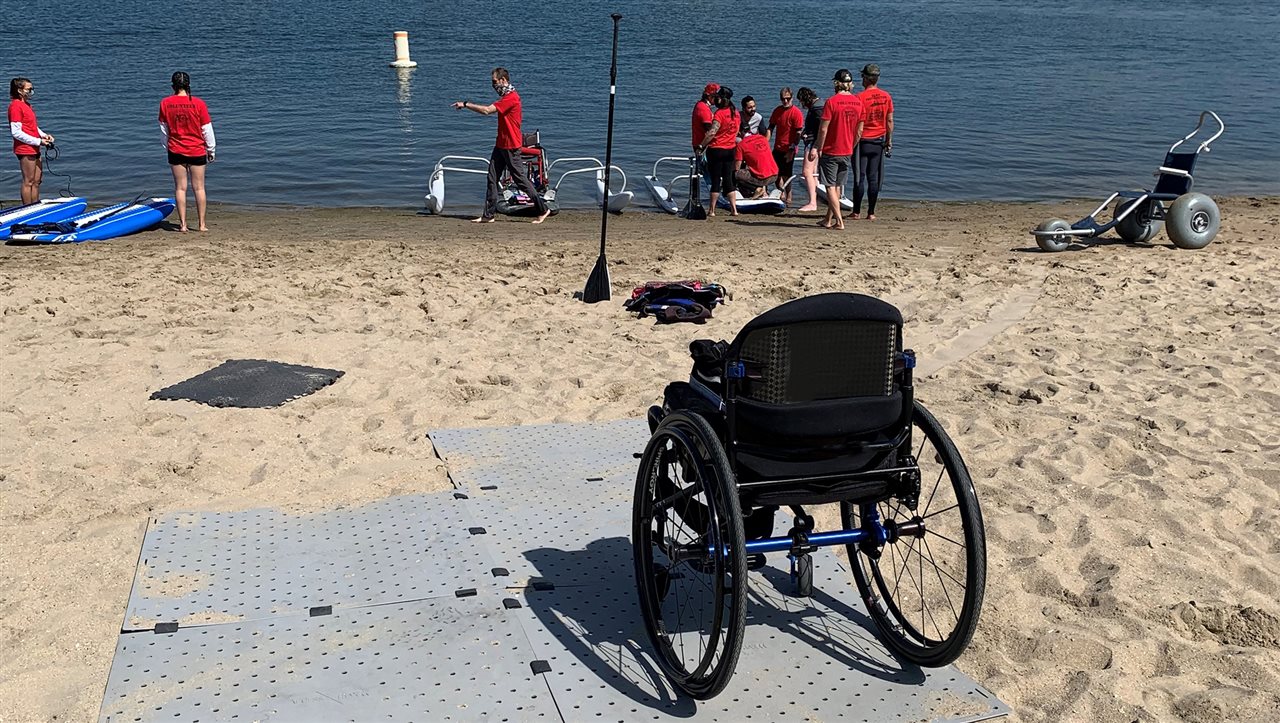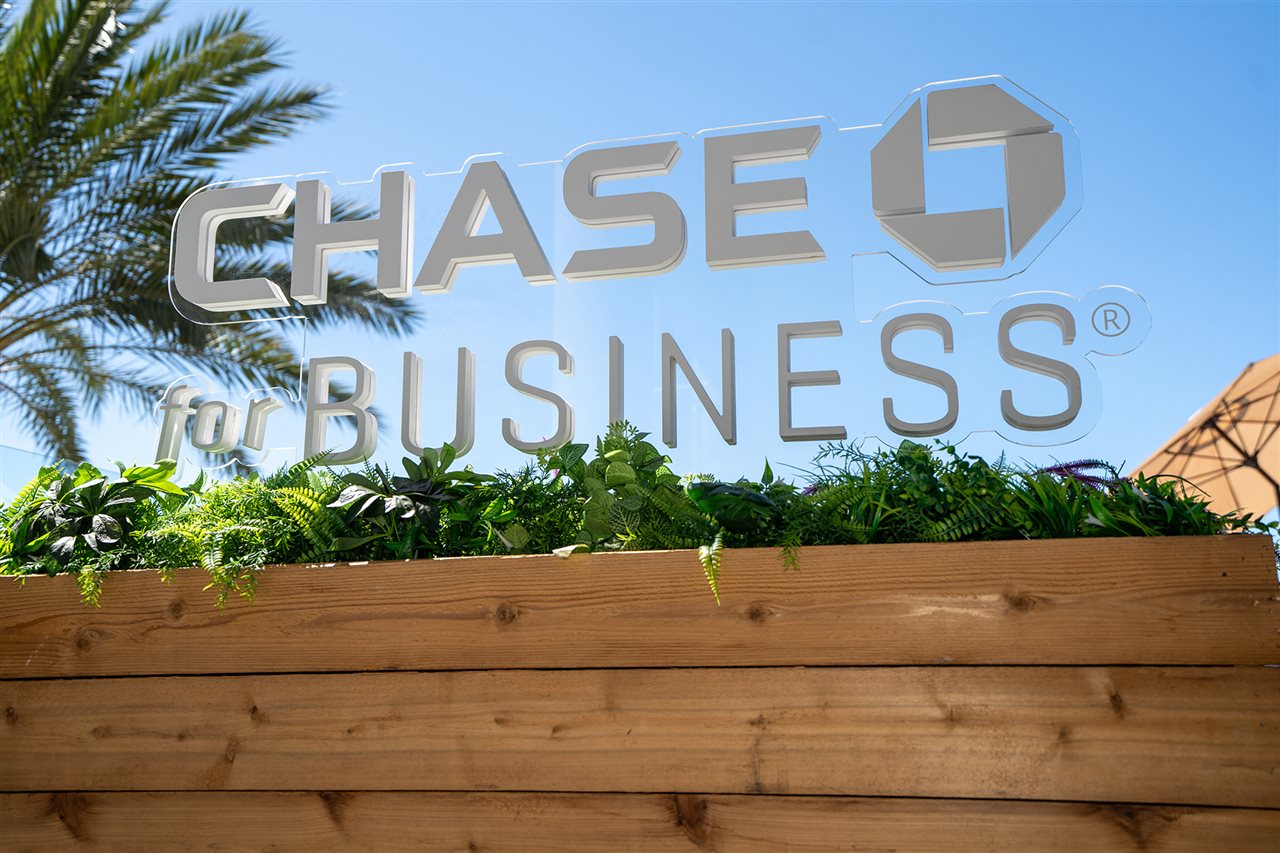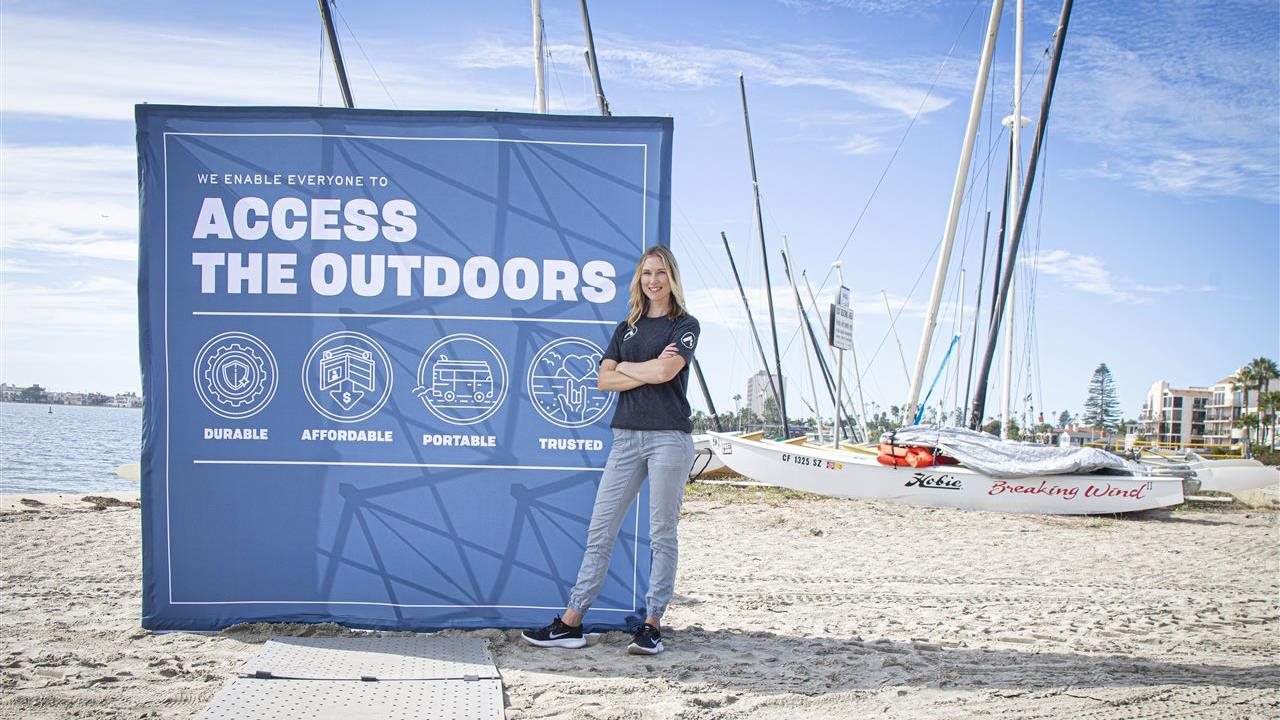Kelly Twichel transformed a childhood challenge into a mission-driven business that's breaking down barriers and opening up the outdoors.
Sand and wheels don't mix. It's a simple physics problem that creates massive barriers for millions of people who use wheelchairs, scooters or other mobility devices. Yet, finding a practical, scalable solution has been anything but simple until San Diego entrepreneur Kelly Twichel started developing Access Trax.
Twichel's understanding of accessibility challenges began early. When she was only 12 years old, she remembers paramedics rushing up the stairs of her San Diego home after her mother, just 52, had suffered a massive stroke during the night and woke up with a disability that would change their family's life forever.
"Suddenly, she was using a wheelchair and things weren't as accessible as they used to be," Twichel said. "I started to see not only the physical barriers, but also the attitudinal barriers impact my mom. She wasn't going and doing things with her friends, or even with some family members, the way she used to."
That early exposure to accessibility challenges stayed with Twichel as she pursued a career in occupational therapy, drawn to its holistic approach and focus on helping people achieve independence. But it was a graduate school class project in 2016 that sparked what would become her life's work.
From class project to life-changing solution
The assignment focused on adaptive surfers, people who love to surf but use wheelchairs or other mobility devices to navigate daily life, and the challenge was clear: How do you cross sand in a wheelchair when wheels and sand fundamentally don't work together?
Twichel and her classmate created prototype mats from materials at the local hardware store, designing surfaces with traction that could support wheelchair wheels. In October 2016, they volunteered at a surfing competition in Southern California, bringing their makeshift solution to test with five adaptive surfers.
The response was immediate and overwhelming.
"The minute the surfers got on the path with their wheelchairs, they were propelling their own wheelchair down the beach to the water," Twichel said. "They had greater independence. Nobody was carrying them and nobody was pushing them in a beach wheelchair."
She walked away from that competition with what she calls "a good kind of trouble," the overwhelming sense of responsibility that comes with discovering you might have a solution millions of people urgently need to better access the outdoors.

Building without a blueprint
Turning her passion project into a viable business was the next big leap for Twichel, a transition that brought its own set of unfamiliar challenges. She didn't have a background in business or sales, so she didn't know where to begin to create or even scale her business effectively. The early hurdles threatened to derail the project before it gained momentum. Manufacturing costs, supply chain decisions and funding challenges all demanded solutions Twichel had never encountered before. She bootstrapped the operation, winning a small grant through a school business competition to fund their first proper prototypes.
As Access Trax grew, Twichel needed financial support to help with her expansion. She had established her relationship with Chase for Business in the early days when she was creating an LLC and opening a business account, but the partnership deepened in 2021 when she met Peter Jackson, Southern California executive director at Chase, at a pitch competition where she won first place.
Jackson provided crucial guidance on credit requirements and lending criteria. He helped her understand the ratios, adhere to timelines and crack what Twichel once thought was a "voodoo algorithm" to qualify for traditional financing (much in the same way consumers work to qualify for mortgage loans) and the coaching paid off. After methodically building her business credit and financial profile, Twichel qualified for a line of credit that marked a huge moment for the business.
"What makes our partnership with Kelly and Access Trax special is the shared belief in purpose-driven businesses," Jackson said. "Kelly has built something special. She's changing lives and enabling everyone to access the outdoors, and we're proud to support entrepreneurs who show that sustainable growth and positive impact can go hand in hand."
Her relationship with Chase recently led to Twichel being featured at The Experience San Diego, an event series from Chase for Business designed to support and educate small business owners through a full day of programming and networking with entrepreneurs and industry experts.
Beyond the beach
The additional funding allowed Access Trax to expand far beyond its adaptive surfing origins. The lightweight, portable mats now serve people who often go overlooked in conversations about accessibility: families pushing strollers across sand, event organizers creating accessible pathways, and perhaps most surprisingly, major film productions. During the pandemic, when event revenues were inconsistent, a call from a long-running medical drama opened an entirely new market segment.
"They wanted to rent the mats for their outdoor filming because the pathway would provide stability for moving heavy equipment," Twichel said. Since then, she's worked with other major Hollywood studios, proving that solutions designed for accessibility often serve universal needs.
Looking toward 2028
From day one, Twichel has maintained an audacious goal to provide accessibility solutions for the 2028 Los Angeles Paralympic Games. She still has the original piece of paper where she wrote that objective, and she's spent nearly a decade methodically building relationships with Paralympic sports organizations to achieve it.
"While I can't be there as an athlete, if I could be there as a supporter to serve those athletes as they go through their dreams and achieve their dreams, that's something that money can't buy," she said.
Twichel's journey to build a company that serves everyone from Paralympic athletes to Hollywood productions demonstrates how personal challenges can become powerful catalysts for change. By refusing to accept barriers as permanent, she's created pathways, both literal and figurative, that prove inclusion doesn't have to be so complicated.

Visit chase.com/business to learn more about how Chase for Business is supporting small business owners.
The testimonials on this page or provided via linked videos are the sole opinions, findings or experiences of our customer and not those of JPMorgan Chase Bank, N.A. or any of its affiliates. These opinions, findings or experiences may not be representative of what all customers may achieve. JPMorgan Chase Bank, N.A. or any of its affiliates are not liable for decisions made or actions taken in reliance on any of the testimonial information provided.
JPMorgan Chase Bank, N.A. Member FDIC
©2025 JPMorgan Chase & Co.



